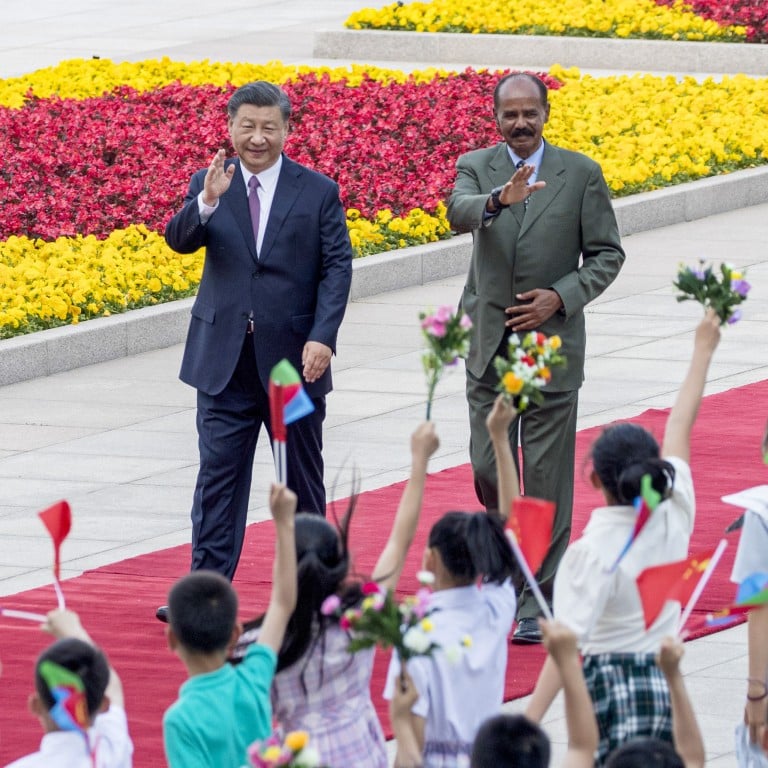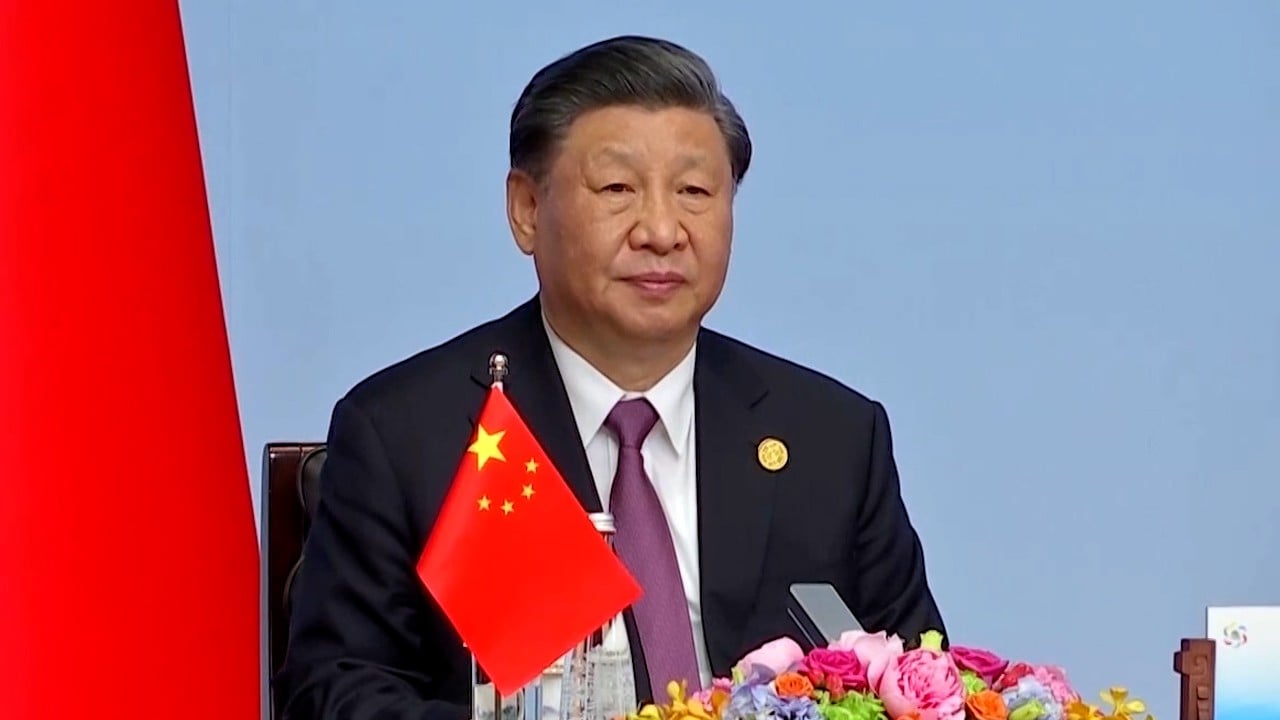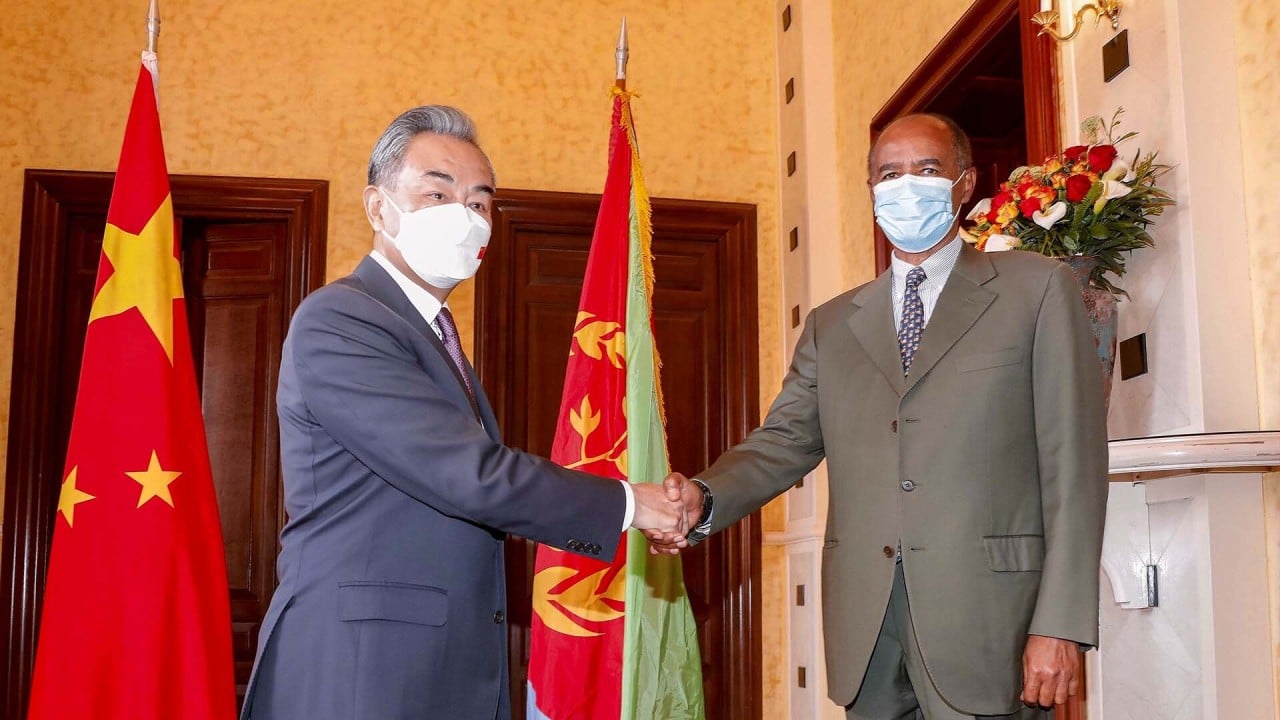
China and Russia pursue Eritrea for its strategic location in Africa, resources and transport potential
- Big powers consider Eritrea’s access to the Red Sea, Suez Canal and Persian Gulf waters and onwards to the Indian Ocean important
- But Western countries have largely ‘given up’ on the country because of autocracy, military involvement in Tigray region and poor human rights record: analyst
Its geopolitical significance in the Horn of Africa and easy access to the Red Sea had attracted the attention of Beijing and Moscow, observers said, with Eritrean President Isaias Afwerki endearing his country to the big powers and earning finance for projects and investments.
Chinese belt and road engagements with Eritrea rose 359 per cent in the first half of this year compared with the same period last year, according to a recent study by the Green Finance and Development Centre at the Fanhai International School of Finance, Fudan University.
Christoph Nedopil Wang, director of the Fanhai green finance centre, said Chinese investments in Eritrea were related to mining, including potash, a potassium-rich salt. He cited the Sichuan Road and Bridge Group’s buyout this year of Australia’s Danakali Colluli potash project worth US$131 million as an example.
Chris Devonshire-Ellis, chairman of consulting firm Dezan Shira & Associates, said the jump in the first-half belt and road numbers for Eritrea came from a very small base rather than a large investment. He said the country was of strategic interest because of its long coastline, including a couple of larger ports.
“These can provide regional maritime connectivity (neighbouring Sudan is another China play) as well as military naval support as the Horn of Africa is notorious for piracy,” Devonshire-Ellis said. “For both China and Russia then, Eritrea has potential – and could even become a link to the INSTC [International North–South Transport Corridor] in time.”
In recent months, Isaias has met his Chinese and Russian counterparts. In May, he made a four-day state visit to China, where President Xi Jinping promised to encourage and support Chinese companies to invest in Eritrea and strengthen cooperation in infrastructure, telecommunications, agriculture, mining and fisheries. Further, Xi said China would continue sending medical teams and senior agricultural experts to Eritrea.
China’s Belt and Road Initiative regains momentum
Also in May, Isaias made a four-day state visit to Moscow and then in July attended the Russia-Africa Summit in St Petersburg. Russian President Vladimir Putin said an ad hoc working group was “set up to look into opportunities to boost trade and step up economic cooperation between our countries”.
According to Joshua Meservey, a senior fellow at the Hudson Institute who focuses on great power competition in Africa, Eritrea holds a commanding position on the Bab-el-Mandeb Strait, a global shipping choke point where Eritrean islands pepper the Red Sea approach to the strait.
Seifudein Adem, an Ethiopian global affairs professor at Doshisha University in Japan, said Eritrea had become the darling of both Russia and China because of its strategic Red Sea location, one of the world’s major sea routes, and proximity to Middle East oil reserves.
Eritrea’s access to the Red Sea, the Suez Canal and Persian Gulf waters and onwards to the Indian Ocean is important for the success of the maritime silk road, part of Xi’s belt and road programme.
“In a sense, Eritrea’s recent flirtation with Russia and China and turning its back on the West can thus be seen as a default mode of diplomacy for Eritrea under the circumstances,” Adem said.
Consequently, the government in Asmara sought political and economic support wherever it could find it, said Shinn, a former US ambassador to Ethiopia. He said Eritrea was the only country in Africa to consistently take Russia’s side in the Ukraine war.
Modern slavery most widespread in North Korea, Eritrea, report finds
In a recent paper, Meservey said that if China developed a base – or even dual-use infrastructure – in the Eritrean port cities of Assab or Massawa to complement its base in neighbouring Djibouti, it could blockade the Bab-el-Mandeb Strait.
“If a confrontation with China were to occur, such a closure would force America’s Sixth Fleet to waste precious days steaming from the Mediterranean Sea around the southern tip of Africa to get to the Indian or Pacific oceans,” Meservey said.



